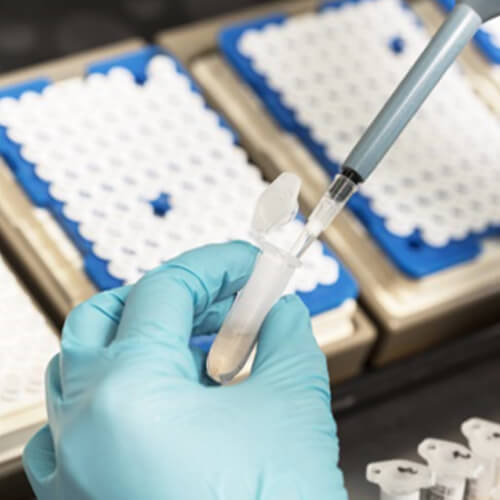Protease Inhibitors
* Please kindly note that our products and services can only be used to support research purposes (Not for clinical use).
Online Inquiry
Introduction
Protease inhibitors (PIs) are peptide compounds with a cyclic structure and are important biochemical and biochemical agents. PIs bind to some groups on the active center of the protease molecule, competitively inhibits protease activity or acts as an inhibitor of protease activity, degrading or even disappearing protease activity, but do not denature the enzyme protein. When extracting proteins, PIs prevent the protein from being hydrolyzed by proteases released by broken cells. In addition, PIs have targeted targets that act on viral-associated proteases and inhibit the replication and transcription of related viruses. On the other hand, in a series of important physiological and pathological processes, protease inhibitors play a key regulatory role in the immune system in the body.
Mechanism of action
Protease inhibitors can provide effective AIDS antiviral treatment. During the HIV replication cycle, aspartic proteases are responsible for the cleavage of the polyprotein encoded by the gene into the structural proteins (matrix, shell, nucleocapsid) and enzymes (protease, integrase, reverse transcriptase) necessary for viral maturation. HIV-1 protease inhibitor (PI) mainly acts on viral proteases to inhibit the activity of HIV PR. HIV will produce immature and non-infectious virus particles in infected cells, so that the virus cannot be assembled properly. The protein precursor of HIV 1 needs to be processed into a mature protein under the catalysis of protease, and PI can prevent the cleavage of the precursor protease, resulting in accumulation of non-infectious virus particles and achieving antiviral effect.
Application of Protease Inhibitors
Although AIDS has not been cured so far, no vaccine can be prevented, and effective antiviral treatment is the best way to suppress HIV. Among them, protease inhibitors has a strong anti-HIV effect and is currently used regularly (about 26%). In addition to its important role in anti-HIV, HIV PI has been reported to inhibit other effects such as Kaposi malignancy and lymphoma growth. Other types of protease inhibitors also have good effects in immune regulation.
References
- Rodger AJ, Cambiano V, Bruun T, et al. Sexual activity without condoms and risk of HIV transmission in serodifferent couples when the HIV-positive partner is using suppressive antiretroviral therapy[J]. JAMA, 2016, 316(2), 171-181.
- Calin R, Hamimi C, Lambert-Niclot S, et al. Treatment interruption in chronically HIV-infected patients with an ultralow HIV reservoir[J]. AIDS, 2016, 30(5), 761-769.










